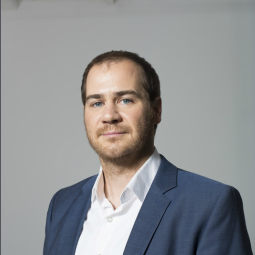Jérôme Dupras
Professor UQO
Université du Québec en Outaouais
Research Chair in Ecological Economics
Website
https://isfort.uqo.ca/en/professeurs/jerome-dupras/https://www.crcecoeco.ca/
Biography
Professor in the Department of Natural Sciences of the Université du Québec en Outaouais and researcher at the Institute of Sciences of the Temperate Forest (ISFORT). He holds a PhD in Geography and a BSc in Biochemistry from the Université de Montréal and completed a Postdoctoral fellowship in the Department of Biology at McGill University. His research interests focus on the economic valuation of ecosystem services, the relationship between ecosystems and the production of ecosystem services, and governance and land use planning.
Current Urban-Forest Projects and Initiatives
Research Chair in Ecological Economics
Professor Dupras has also just become the holder of a brand new research chair: the Canada Research Chair in Ecological Economics. This chair, the first in this field in the country, will aim to better understand and measure the contribution of biodiversity and ecosystems to human well-being. To do this, an analysis of agricultural, forest and urban territories will be carried out, based on socio-ecological modeling, economic theory and environmental governance. From a sustainable development perspective, Professor Dupras’s research will aim to develop frameworks and tools that promote an economy that respects the conditions and capacities of nature and communities.
Green and blue infrastructure in urban areas
Global Change (GC) is increasingly threatening the green infrastructure of our cities, especially trees and associated vegetation. Indeed, these are affected more and more by the increase in environmental stresses and exotic insects and diseases. However, these trees provide directly and indirectly, through the functioning of the urban terrestrial ecosystem that ensues, many ecosystem services essential to our well-being. These services are likely to be significantly reduced by these growing threats from GCs. The hypothesis underlying this project is that the resistance and resilience of urban and peri-urban ecosystems, and consequently the ecosystem services they provide, can be increased by promoting greater structural diversity of ecosystems, greater functional diversity of trees and associated vegetation, and greater connectivity of green spaces to meet the global changes predicted for southern Quebec in the coming years. We are working in the areas of greater Montreal, Ottawa / Gatineau and Quebec City to plan biodiversity corridors, measure the flow of ecosystem services, and carry out an economic assessment. This project is funded by the National Capital Commission, the David Suzuki Foundation and the Center for Biodiversity Science.
arrow_backBack to Members
